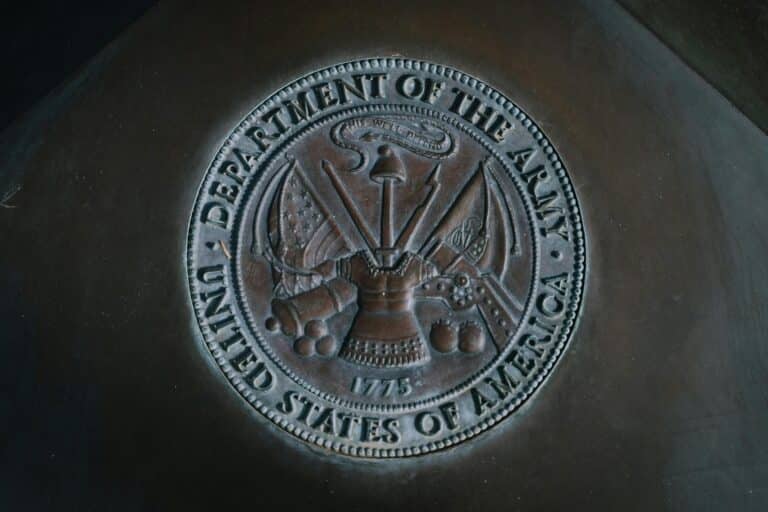For the second time, a branch of the armed forces may soon find itself under legal scrutiny for failing to prevent a mass shooting carried out by one of its members. There’s reason to think that suit could succeed.
On Tuesday, lawyers representing a group of 100 survivors and family members of victims of last year’s mass shooting in Lewiston, Maine, served the US Government legal notice of their intent to sue the Department of Defense, the US Army, and the Keller Army Community Hospital for negligence. They allege the Army failed to adequately respond to warning signs and an explicit threat to commit a mass shooting from a reservist before he ultimately carried out his attack last October.
The shooter went on to kill 18 and wound 13 others in what became the deadliest mass shooting in Maine history.
“In the year since the mass shooting, there have been several investigations and many facts have come to light that show that the Army could have—and should have—acted,” Travis Brennan, one of the attorneys representing the families, said in a statement. “[It] is now abundantly clear that there were many opportunities to intervene that would have prevented the tragic events of October 25.”
In many ways, the planned lawsuit is the expected result of nearly a year’s worth of scrutiny into what went wrong and allowed the Lewiston shooting to happen. Separate formal investigations conducted by the US Army Reserve, US Army Inspector General, and an independent commission ordered by Maine Governor Janet Mills (D.) have all faulted members of the shooter’s Army unit, Army leadership, and local law enforcement to varying degrees. The reports primarily criticized them for failing to disarm the troubled reservist and follow up on his erratic behavior despite having several opportunities to do so. The Army even admitted to disciplining three members of his unit leadership for “dereliction of duty” related to their handling of the situation.
But suing government agencies and officials for not preventing or even stopping somebody from carrying out violent attacks is an uphill battle. In general, the legal system places an extremely high bar for successful liability claims against the government, particularly for cases in which third parties caused the harms. Government entities enjoy sovereign immunity, which generally shields them from liability suits, and decades of case law have established that government officials do not have a legal duty to protect individual members of the public from harm under nearly all circumstances.
However, that hill has been climbed, and that bar has been cleared before.
The Federal Tort Claims Act (FTCA) partially waives the federal government’s sovereign immunity by allowing private parties to hold it responsible for wrongdoing its employees or agents committed during their employment. With certain exceptions, the law creates an avenue for the government to be found liable under circumstances in which a private citizen committing the same act would be liable under tort law.
In what could be the closest analog for the Lewiston suit, an FTCA claim was the vehicle through which more than 80 victim family members and survivors of the Sutherland Springs shooting were able to secure a $230 million liability judgment against the Air Force in 2022. In that case, the Air Force failed to report the Sutherland Springs shooter’s military conviction for domestic violence to the National Instant Criminal Background Check System (NICS). That omission allowed the shooter to purchase the gun he later used to carry out the attack.
The judge overseeing that lawsuit concluded that the government “failed to exercise reasonable care” when it did not submit the gunman’s criminal record to NICS, and its negligence was “60% responsible for the Plaintiffs’ injuries.”
Still, while the Sutherland Springs case serves as a proof of concept for securing judgments against a branch of the armed forces for failing to prevent a mass shooting, it also demonstrates why it is an arduous task. The Department of Justice (DOJ) ended up appealing the $230 million award, and the Sutherland Springs families ultimately opted to settle the case for $144 million in 2023, a full five years after they first sued.
In some respects, a similar settlement agreement with the Army is probably the more likely outcome for the Lewiston families if their initial claims are allowed to proceed to trial. Other civil liability suits against the federal government over its failure to prevent mass shootings have also ended with settlements.
In 2016, the victims of the Mother Emanuel church shooting in Charleston, South Carolina, sued the FBI over its failure to find the NICS record that disqualified the shooter from buying the gun he used in the attack. After the Fourth Circuit Court of Appeals ruled that their FTCA claims could proceed, the Justice Department in 2021 agreed to an $88 million settlement with them.
Likewise, Parkland school shooting victims sued the FBI over its failure to properly follow up on repeated tips the shooter in that case was planning to attack the school. After a district judge similarly ruled that their FTCA claims could proceed, the DOJ settled with the families for $127.5 million in 2022.
Many of those settlements were accompanied by reforms, either through internal regulations or legislation, designed to avoid repeats of the failures that–at least in part–led to the slaughter.
The Army may attempt to settle with the Lewiston families to avoid the public relations hit that would come from fighting the families of mass shooting victims after already acknowledging internal failures and oversight. Or, if it feels it’s on a firmer footing this time, it could attempt to defend the case in court.
Whichever way it plays out, the actions of the Lewiston families show this could be a new trend for trying to force government agencies to be more proactive in stopping gruesome attacks. There is now a clear blueprint for extracting some measure of accountability from the federal government when it fails to properly heed the warning signs of an impending mass shooting.






